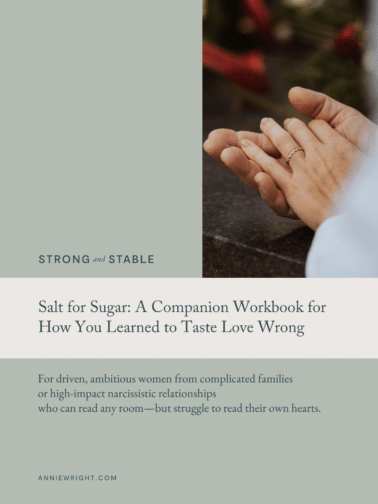TL;DR –Those from relational trauma backgrounds often struggle with the supposedly "basic" life skill of keeping themselves safe as adults—not because they're careless, but because childhood abuse, neglect, or chaos left them with maladaptive beliefs about deserving protection, normalized dangerous situations, and disconnected them from body signals that warn of danger. When your father drove drunk or your mother never called police, when abuse was framed as love or you learned to survive by ignoring your body's alarm bells, you internalized dysfunctional blueprints for safety that persist into adulthood. Keeping yourself safe means protecting yourself as a good enough parent would have—from installing multiple locks and security cameras to blocking unsafe family members, from honoring your instinct to cross the street when uncomfortable to pursuing restraining orders without guilt about appearing "excessive."
These actions aren't paranoid or dramatic for trauma survivors; they're necessary and reparative, helping regulate your nervous system back into your Window of Tolerance while signaling to the unprotected child within that someone is finally, fiercely guarding their wellbeing. By choosing safe neighborhoods when possible, maintaining working smoke alarms, sitting where you can see exits, and refusing to apologize for protective choices others might not understand, you're not just ensuring physical safety but reparenting yourself with the vigilant care you always deserved.
Many people take it for granted that they know how to protect themselves well and that others would, of course, know how to do the same.
But, much like how two weeks ago we discussed the criticality of tending to your basic medical needs as an adult, strengthening your ability to keep yourself safe can likewise be something that folks who come from relational trauma backgrounds struggle with.
To learn why this may feel like a struggle, and to learn practical, tangible ways to practice keeping yourself safer as an adult, please keep reading.
Why is it hard for those from relational trauma backgrounds to keep themselves safe as adults?
It may seem obvious that keeping yourself safe as an adult should be a top priority. You would know, inherently, what exactly this means and how to do it. In my personal and professional experience, those with relational trauma histories may struggle with this life skill – sometimes mightily so.
Why?
As I’ve written about before, coming from a relational trauma history can leave one with multitudinous, biopsychosocial impacts that can lead to deficits in seemingly basic life skills that their non-traumatized peers don’t struggle with.
And one of these “seemingly basic” life skills can be how well or poorly one is able to keep themselves safe as an adult.
When you come from a relational trauma history – the kind of trauma that results over the course of time in the context of a power-imbalanced and dysfunctional relationship (usually between a child and caregiver) – you may experience some following biopsychosocial impacts.
Having maladaptive and dysfunctional beliefs about yourself.
For example, conscious or unconscious thoughts and beliefs that look like: “I’m a broken person who deserves to be treated poorly.” or “I can only attract assholes and cheaters. A nice guy would never give me the time of day.” And these thoughts and beliefs inform your actions or lack of actions to keep yourself safe.
Having maladaptive and dysfunctional beliefs about others.
For example, conscious or unconscious thoughts and beliefs that look like this. “He’s not really that abusive – that’s just how he shows love.” “Everyone gets screamed at sometimes in their relationships. That’s just marriage, right?” And these thoughts and beliefs inform your actions or lack of actions to keep yourself safe.
Having no appropriate ideas of adequate safety measures because of a lack of modeling.
For example, a child who grew up with a father who drove after drinking. Or a mother who never called the police because she thought all police were bad. He might struggle to reach out to proper authorities for help protecting themselves. Or might condone friends and partners driving under the influence with them and their own children in the car. Our early relationships and experiences inform what we later internalize as normative beliefs about the world. And if we have no models, we may lack functional ideas about safety as an adult.
Curious if you come from a relational trauma background?
Take this 5-minute, 25-question quiz to find out — and learn what to do next if you do.
START THE QUIZStruggling to feel connected to your body and thus not able to access your more subtle somatic sensations (and therefore sound instincts) that warn you of danger.
Someone who can’t at all feel her somatic sensations – especially the subtle signals – might miss important cues and clues her body is trying to send her about unsafe situations, places, and people. Often those from relational trauma histories learned it wasn’t safe to exist in their bodies, and so later, without access to the body’s wisdom, this might lead to an impaired ability to keep one safe as an adult.
And these are just a few of the ways growing up with a history of child abuse, neglect, or chaos might lead to maladaptive and dysfunctional ways of viewing safety and being able to practice safety as an adult.
Thus, learning, re-learning, and refining the life skill of keeping yourself safe as an adult is a critical part of relational trauma recovery.
But what does it even mean to keep yourself safe as an adult?
In essence, I personally and professionally believe that keeping yourself safe as an adult means protecting yourself as a good enough mother or father would have done for you.
This definition is, I admit, subjective (meaning it will be unique for all of us however we define good enough parenting), so, to catalyze your thinking about this, I’ll share a list of practical examples that come to mind for me.
Keeping yourself safe as an adult may mean:
Doing whatever it takes to live in a safe, peaceful environment without the presence or threat of abuse, violence, and pain inside and outside of your home.
This may include choosing safe neighborhoods (not to mention cities and states) to live in and renting and buying structurally sound apartments and homes to dwell in. This may mean living alone and getting away from your family of origin or romantic partner if they are a source of abuse and/or ensuring you live only with safe, trustworthy people if you share your housing. (And I have to acknowledge how huge a privilege this ability to choose your environment is. It’s a privilege that some people – because of financial insecurity and the systemic forces oppressing them that led to such insecurity and poverty of choices – may simply not have).
Designing your primary personal environments – your home, your car, your workplace, etc. – to help you feel safe in whatever ways you can.
This may mean installing multiple locks on your doors and/or installing Nest cameras to monitor the inside and outside of your home. This should mean making sure you have functional, working smoke alarms, carbon monoxide detectors, fire extinguishers, escape ladders, and go bags/earthquake kits (or other version of necessary tools for your unique geographic climate that help ensure safety). This means making sure your car runs smoothly and is kept updated to maintain your safety while in it, and more.
When, in public and outside of your primary environments, making choices that honor what your somatic sensations and instincts want to do to keep you safe.
Maybe this means sitting with your back to the wall while at work and at restaurants so you have a plain view of the door. Maybe this means rapidly and confidently crossing the street when unknown figures are walking toward you and you don’t feel comfortable (and not worrying or caring that you may appear rude while doing so!). And maybe this looks like wearing masks in environments big and small because doing so helps you feel like you’re better protecting yourself regardless of what other people think and feel about your choices.
Being able and willing to explore next-level interventions to remove and block unsafe people from your life.
This may look like estranging yourself from certain family members. Or blocking them on social media (or getting off social media altogether), blocking their numbers on your phone, and filtering their email addresses to folders so their messages never land in your inbox and startle you. This may look like you getting a PO Box versus listing your street address on any mail. This may look like insisting that no one shares your home address, email, or phone number with anyone else without your explicit consent. Or this may look like being willing to call 911, pursue restraining orders, or hiring an attorney to act as a buffer between you and the abuser/aggressor so you don’t have to deal with them directly.
And this list is just the tip of the iceberg.
There are so many other ways a good enough parent might take care of their child and thus countless other actions you could take to help ensure your own safety as an adult.
Now, you might read this essay and think that the above actions seem excessive.
But I want to invite you to consider that, if you’ve spent your life feeling unsafe and unprotected by those who should have protected you well against life circumstances (not to mention if you’ve spent your life feeling unsafe and unprotected because your caregivers were the very people who directly abused you and/or threatened your life), these action steps – far from being excessive – are, instead, necessary and reparative.
Taking all and every action step that helps you feel even moderately safer and more protected in the world may greatly help regulate your nervous system and bring you back into your Window of Tolerance.
And, more ephemerally but still equally important, these actions may send a signal to the little child inside of you who needs strong, fiercely protective and assertive reparative inner parenting to help heal from her relational trauma history.
Rebuilding Safety Foundations Through Protection-Focused Trauma Therapy
When you tell your therapist you still let dangerous people into your life because “it’s not that bad” or you ignore every alarm bell your body sends because feeling nothing kept you safer than feeling everything as a child, you’re revealing how profoundly relational trauma disrupted your most basic protective instincts—but therapy can help you recognize the 15 signs that your boundaries need work and rebuild your capacity to protect yourself with the fierce care you always deserved.
Together, you examine the maladaptive beliefs that normalize danger: the unconscious conviction you deserve poor treatment, the idea that abuse equals love because that’s how it was packaged in childhood, the assumption that everyone tolerates being screamed at because your family made it seem normal. Your trauma-informed therapist helps you recognize how disconnection from your body—once a brilliant survival strategy—now prevents you from accessing the somatic wisdom that signals threat, those subtle gut feelings that could guide you away from unsafe people and situations if only you could feel them.
The therapeutic work involves both cognitive restructuring and somatic reconnection—challenging thoughts that minimize danger while gradually rebuilding your capacity to feel and trust bodily sensations without overwhelm. Your therapist helps you develop a personalized safety plan that might seem excessive to others but feels reparative to you: multiple door locks that finally let you sleep, blocking family members without guilt, sitting where you can see exits, crossing streets when uncomfortable without worrying about appearing rude. Through role-play and gradual exposure, you practice asserting boundaries and implementing safety measures, learning that protecting yourself isn’t selfish or dramatic but the sacred responsibility of reparenting the child who was never properly guarded.
Most powerfully, protection-focused therapy helps you understand that every safety measure you take—from installing security cameras to pursuing restraining orders—sends a crucial message to your nervous system and inner child: someone is finally, fiercely protecting you, even if that someone has to be yourself, proving that you matter enough to be kept safe in ways you never experienced but always deserved.
Wrapping up.
So, if you read this essay and thought to yourself “I see myself in those maladaptive beliefs.” or if you don’t even know how to feel your body and get in touch with your subtle somatic signals, I want you to please consider reaching out for therapy support: you matter way too much to dismiss or devalue your safety.
Now, I’d love to hear from you in the comments below:
Did you relate to today’s essay? Does keeping yourself safe as an adult feel like a skill you’ve had to learn and/or is it something you still struggle with? What’s one more action, step, or behavior you personally take to help keep yourself safe as an adult after your adverse early beginnings?
Please, if you feel so inclined, leave a message in the comments below so our monthly blog readership of 20,000 plus people can benefit from your wisdom and experience.
Here’s to healing relational trauma and creating thriving lives on solid foundations.
Warmly,
Annie





